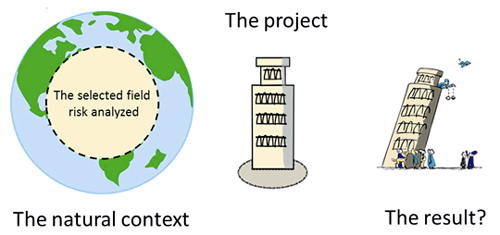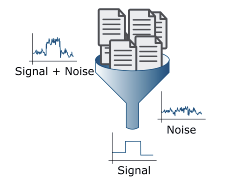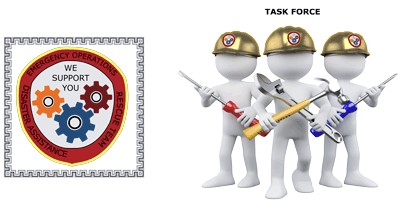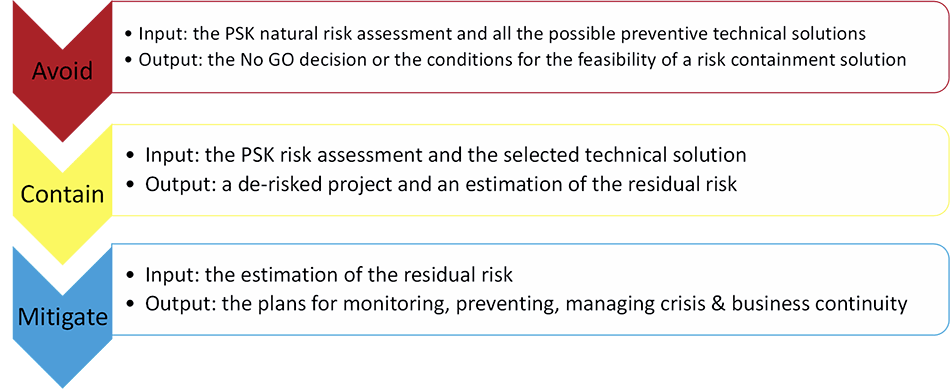We would like to offer you the integration of a progressive natural risk management methodology in your project management scheme, in order to work out how to protect over the long-term your business opportunity, from a possible hostile natural system.
Our approach to risk management

René Magritte « Clairvoyance » 1936
From the sunrise to the sunset of a project, we believe that time is the area of major concern for the risk analysis and management. Therefore, the kinetics of the risk and the specific risk associated to the project evolution will be formally studied in our risk analysis.
We may use this definition for the risk management:
“Formalizing today, as much as we can, all the consequences of our decisions to better manage our uncertain future”.
(In “The subjectivity of the risk” Antoine Jeannou – “soon to be released”)
Clarifications for projects impacted by natural risks
Natural or environmental risks?

Our environment is exposed to the risks caused by human activities, but these activities are always under the threat of natural risks.
Analyzing natural risks is analyzing the constraints resulting from the placement of a human project or any activity in the host system: nature.
Managing the natural risk is protecting ourselves (people + assets), i.e. either avoid or adapt.
Administer nature exploitation is having an environmental policy in order to protect nature from any damage: human or natural.
PLUTON DG first objective is decision making project assistance. Another objective is reduce the uncertainty of the project.
Risk and project management: a model for the reduction of the uncertainty

To manage a risky project:
Skills in the organization
Filters definition

Each stage of the uncertainty reduction (or value creation) passes through a filter (it should be dynamic and auto learning).
Deliverables should be accurate information, adjusted to the next project phase.
Task force definition

While working complex natural systems, when it comes to operate and set the project in its final environment: things may not be “as per plan”.
Making decisions in stressful operational conditions (i.e. real time mode) requires specific know-how gained with experience.
The task force is your operational emergency response. Having identified and secured a reference technical team for the complex operations, can be an invaluable asset for your company.
Reliable information
Risk analysis and information processing can be described as:

Variable: Data provided for the analysis are often limited or incomplete. They also contain the uncertainty from previous analysis or modelling.
Adjustable: There is nothing absolute, tools, techniques and skills are adjusted to meet the quality objective of the assessment.
Qualitative: The analysis take into account the number of interaction of the different studied parameters of the natural system (known or unknown). Also, by adding the inherent uncertainty of the input data package, resulting estimation of probabilities will be qualitative. Results are preferably described as scenarios (permanently updated) of a consistent sequence of events using wording as “low, base, high”, or “low, mean, worst”. Risk management will address these scenarios.
Information quality is an important uncertainty factor at all stage of the project life

Efficient methodology
Integrating the ACM risk management methodology to your Project management
Risk management: the sequence of the decision making process

Managing a risky project with ACM:

